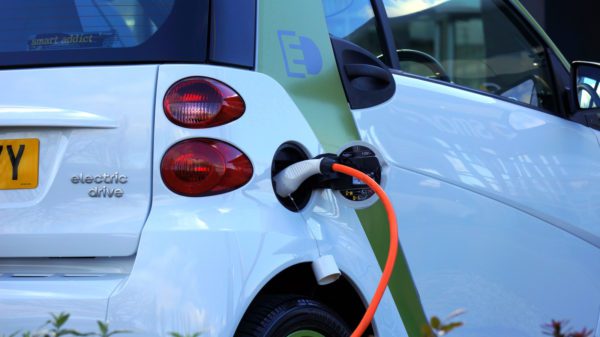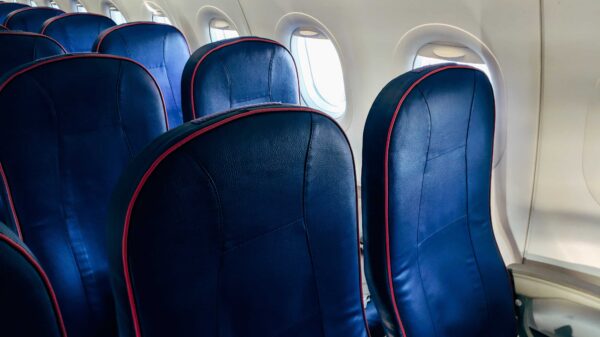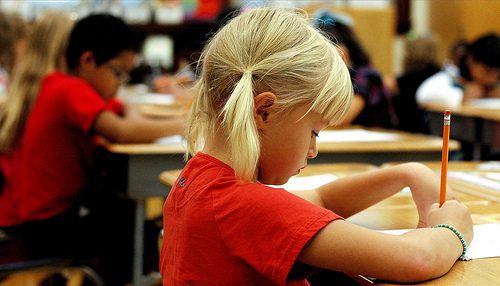Bold Banter is a series that gives our readers an opportunity to explore opposing views on today’s most divisive topics. Today, we’re looking at charter schools and school choice and exploring whether present trends have been good or bad for America’s schoolchildren.
Carrie Lukas: Parents Deserve Real Education Choice
Imagine you lived in a system where all parents choose which school their child attends.
Just like when selecting a college or shopping for another significant service provider, parents can consider many factors. Location is big consideration — most want something close to home to avoid long commutes to school. But they also look at a school’s philosophy, the teaching method, the types of support they offer, and the unique needs of their child as they make their decision.
Unfortunately, that’s not how it works today. Instead we live in a system in which parents’ residence–which is highly correlated with income–largely determines what school most children attend. This is our norm.
Unless parents can pay private-school tuition, or are lucky enough to live somewhere with charter schools and win a spot there, the only way these families can control where their kids go to school is to change their residency. And many parents take that option and make tremendous financial sacrifices to live where their children get to attend “good” schools. But many other parents can’t afford the costs of moving, let alone paying rent or buying a house in those favored school districts.
It shouldn’t be this way. Parents deserve more options and control over where their children attend school. They shouldn’t be trapped in a school that doesn’t meet their child’s needs. And schools — like any other service provider — should have the incentive of responding to their customers’ needs and providing real value.
The good news is that more states and localities are recognizing that a one-size-fits-all, location-based schooling system doesn’t work for our diverse student population today. They are embracing charter laws so that educators can create new, alternative schools for some students. They are giving parents more choice among public schools.
Rather than having the government dictate where students must attend school, parents should be given options and allowed to choose a school — whether it’s a private, charter or traditional public school — that makes the most sense for their child and family.
Overwhelmingly, research shows that increased competition among schools is leading to better school performance and better outcomes for students.
For example, students in Michigan, including minority students living in poverty, have had higher rates of success in charter schools than in conventional public schools.
In a 2013 study, Stanford University’s Center for Research on Education Outcomes found that students in Michigan enrolled in charter schools receive a better education in math and reading and learn more in a year’s time than those who attend public schools.
Likewise, a 2015 study, also out of Stanford, included an additional year of data in the analysis and concluded that charter school students outperform their public-school peers.
With success like this, it’s no surprise that a study from Mathematica Policy Research found that students who attend a charter school are, on average, more likely to enroll in college and are more likely achieve higher earnings as adults.
We would never accept allowing the government to assign our family to use one hospital, one grocery store, one home builder or one college. Why should we accept this when it comes to elementary and high school?
Julie Alvin: “School Choice” Sure Sounds Good, But Its Downsides Far Outweigh Its Benefits
“School choice.” It’s hard to argue with something that on its face sounds so obviously positive, right? It’s like the term “pro-life.” Don’t we all value life? Don’t we all value the ability to make choices about our family’s education? But the term is misleading, just like lots of the rhetoric surrounding it.
The basic premise of school choice is that states can take taxpayer money that would go to traditional public schools and use some of it to fund charter schools or to give vouchers that parents can use to send their kid to private or parochial schools. The idea is that this allows students to opt out of failing school systems and to better specialize their education based on their specific needs and talents. On its surface, it sounds great. But it doesn’t always work.
For private and parochial schools, vouchers rarely cover full tuition, so the underprivileged kids who might want to avail themselves of the good private and parochial schools out there can’t afford to go, which is one of the many ways school choice increases racial and socioeconomic segregation.
And when it comes to charter schools, there’s no evidence that they perform better than public ones, on the whole — and isn’t allowing kids the opportunity to go to a superior school the whole point? In fact, while 17 percent of students in charter schools performed significantly better than if they’d attended their local public school, 37 percent performed significantly worse, and 46 percent performed the same.
Why is that? Maybe it’s because, rather than being governed by representative school boards elected by the people in the district, charter schools are often run by an executive board that is not accountable to parents.
Maybe it’s because the people who fund these schools are often billionaires such as Betsy DeVos, who are more concerned with, and I quote, using education as a way to “advance God’s kingdom” than with actual performance. Maybe it’s because too much money is going to the for-profit corporations running them and to the school executives rather than to the students. Maybe it’s because charter schools generally have a less-qualified workforce. Maybe it’s because charter schools don’t have to adhere to the same curriculum requirements as traditional public schools. Perhaps in places like my hometown of Detroit, charter schools are exacerbating the struggles of an already dismal public education system, leading to, as a New York Times article about the city’s failing schools put it, “lots of choice, with no good choice.”
To be sure, there are excellent charter schools out there. And while urban charter schools are making gains in some cities, in others, they are utterly failing.
The idea of choice is certainly appealing, and when done right, a charter school can be a great option for the right family. But allowing for poorly regulated school choice means that the existence of subpar charter schools is a reality, and we’re permitting taxpayer dollars to go toward funding those schools rather than fortifying the traditional public education system. And, in that case, no good choices remain.
Photo Credit: Phil Roeder


























